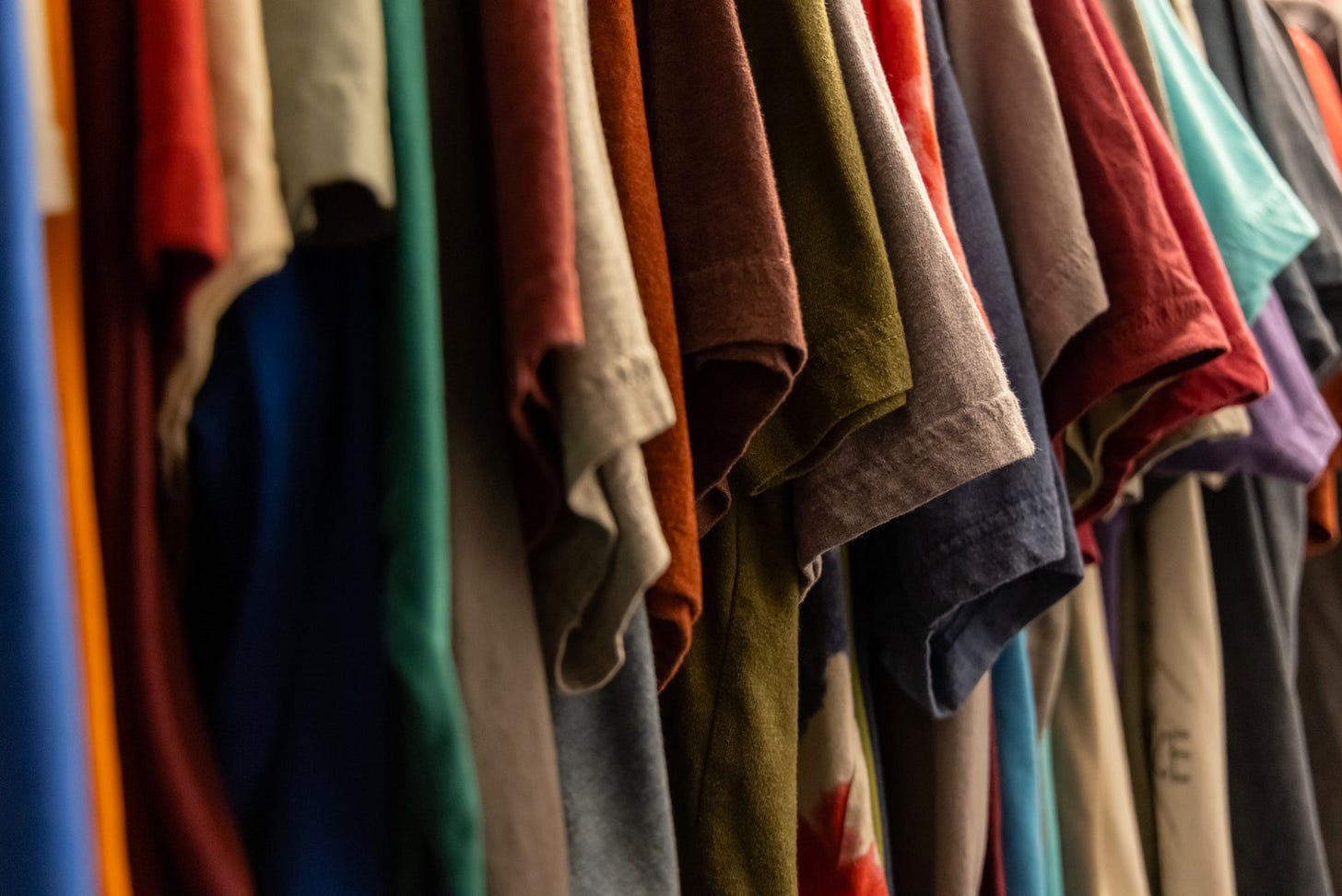We’re sharing Tweetspeak Poetry’s inspiring poemcrazy series,
a book club originally hosted by editor Will Willingham.
As a paid subscriber, you can access an exclusive video of poemcrazy’s author,
Susan Goldsmith Wooldridge, talking with Tweetspeak’s publisher L.L. Barkat.
(Includes a peek into Susan’s wildly creative office and notebooks! )
Small Occasions
When I was in high school, my sister and I hosted a party for Davy Crockett’s birthday. We sent out invitations inscribed with some sort of amusing tale and served appropriate frontier refreshments. We distributed bandanas and headbands to our guests, divided into opposing teams for a lively game of Cowboys and Indians on our side lawn.
It made the local paper, though in fairness I should say I was a columnist for the Milbank Herald Advance so if they didn’t cover it I would have. And in even more fairness I should say that you can get your name in my local paper for pouring coffee at somebody’s afternoon club meeting.
And three decades later, I still remember Davy Crockett was born on August 17.
In poemcrazy, Susan Goldsmith Wooldridge suggests that poems can be “small occasions” we make from everyday events much the way her friend creates small occasions from events as simple as a full moon or a hike or a celebration of an author’s birthday. I imagine she’d be alright with a festive celebration of a folk hero’s birthday as well.
Sometimes we think poems need to be about important, dramatic moments. The events of our lives seem mundane. Often the small occasions in the front or back yard are the most magical. We just need to notice and then create a way to experience and enjoy this ordinary magic. (p. 45)
Listening to Ourselves
Even as I relate that story I hesitate, feeling mildly self-conscious. “I’ve told all my interesting stories already, ” I mutter, as I resort to an account of a culturally insensitive party thrown by a seventeen-year-old. “Folks will grow weary of me talking about myself.” Wooldridge counters this impulse, suggesting we must “start with ourselves before we can reach beyond ourselves.” She goes on to describe the work that poems do to “reveal who we are:”
Poems aren’t simply bits of art to be whittled to perfection and admired and revered. They’re ground troopers with laser beams illuminating caverns within. They can bring messages from and about our deepest selves, broadening our respect and reverence for who we are. (p. 52)
In a practice exercise, she invites us to talk about ourselves, answering a series of “what are you?” questions from a color to a piece of furniture, then crafting a poem by combining the answers with our growing word pool. I played through some discomfort with the exercise, and came out with the following, keeping in mind her directive to “just pile on words. Don’t think.”
I’m the number three, a red ’71
Toyota Corolla wagon,
rusted floorboards shaking
down the street. I’m an oak board,
the color of the lightest grain.
I’m a bleeping dog, a burning
murmur, a requiem sung
in the storm at sea. I’m afraid
of exposure, of leaving my own skin
out in the open cold.
I’m the desk
where you sit, hidden
behind the cataracts,
not able to say out loud
the word behind my eyes,
not today.
Places Can Inspire Poetry
Wooldridge quotes Walt Whitman on writing as saying, “Unscrew the locks from the doors. Unscrew the doors themselves from their jambs!” Just upstairs from that side lawn where we celebrated the small occasion of Davy Crockett’s birthday was my bedroom, a room without a door. This was the room my mind drifted to when she asked to think of a place that has “the mystery or beauty of a poem to you” and list the details that make it so.
Layer upon layer
putty brown paper peels
to the plaster Stocking feet slide
on polished oak floor boards
Naked bulb hangs
on a twisted white cord
from exposed lath Cheap stereo
in white painted closet churns
out The Association
and Chicago on black vinyl
sticking sometimes
like the record’s broken
The white closet and I
know our secrets
Coyote Mischief
My missing bedroom door may have kept me out of trouble as a youngster. But Wooldridge wants us to believe, though it may become harder to recognize as we grow older and more settled, that “We all have a troublemaker inside ourselves.” She speaks of the coyote, mischief-maker of the American Indian, who, “like poetry, is both naughty and heroic at the same time.” Poetry can give us a means to live a relatively ordered and tame existence while letting a (necessary) wildness emerge in our writing. “The strangest, most renegade part of ourselves can be expressed in a poem while we sit quietly in our kitchen or bedroom.”
“This,” she says, “Can save our lives.”
Featured photo by Chase Charaba, Creative Commons, via Unsplash.




